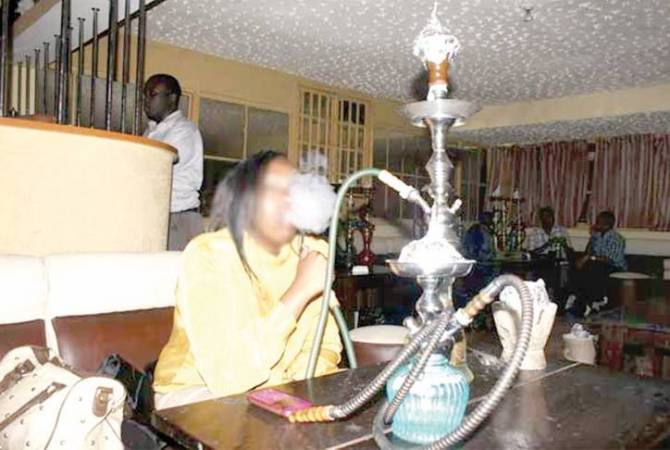Shisha thrives right under the Health ministry’s nose
By People.Reporter, February 22, 2022By Harold Aloo
The government prohibited the consumption, manufacturing, importation, sale, or distribution of water-pipe tobacco, commonly known as shisha, in December 2017, linking it to serious health risks.
Contravening the law would attract a “fine not exceeding Sh50,000, or imprisonment for a term not exceeding six months or both.”
The bold step saw a surge in anti-smoking campaigns by civil societies steered by the Kenya Tobacco Control Alliance, which pushed for immediate implementation of the ban.
Online platforms were flooded with #ChoreaShisha campaigns, meaning avoid shisha, sensitising the public on the dangers of Shisha and its prohibition.
However, five years down the line, the fragrance of shisha smoke serenades nostrils and throats as pubs start selling the product. Concerns now abound as to why relevant authorities decided to look the other way.
The sight of shisha in most pubs is an open secret, and as a matter of fact, smokers no longer hide in “special rooms” anymore. In most night pubs along Thika road, Ngong Road, Lang’ata, Westlands, Parklands, Mombasa road and Kitengela, shisha smoking goes unabated. One-pot can serve a group of roughly five, lasting up to an hour.
Imported shisha flavour
The business has instead advanced lucratively. Depending on the location, the cost of smoking shisha has spiked; from about Sh1,000 before the ban to between Sh2,000 and 3,000 after the ban.
Owning a pot costs roughly Sh5,000 compared to Sh3,500 before the ban. A packet of imported shisha flavour, a tobacco-filled preparation made up of nicotine, molasses, and different flavours, retails at Sh700 while coal goes for Sh300.
‘The ban is there, but shisha smoking will remain,’ says James (not his real name), a manager at one of the high-end night pubs offering shisha along Mombasa road. Although James admits that the daily sale of pots has been affected, the returns are promising. The force behind the decline is not the ban but the current pandemic that has kept a few people off night clubs. “We used to receive a large number of shisha customers before Covid. That’s not the case anymore. But with ongoing vaccinations, shisha sales will definitely shoot up,” he says adamantly.
Before the ban, the high-end pub used to sell up to 100 re-usable pots a night, especially when approaching weekend and James says it is gradually picking up, and they can currently sell between 50 and 80 pots per night.
Steve, another shisha seller operating along Thika and Langata road who also requested not use his real name, believes the ban was not imposed because of associated health risks as purported by the government. “It is just a strategy to impose restrictive measures and punitive taxes on shisha,” he says, questioning why there has been a lapse in enforcement. In a night, his team can sell up to 150 pots but at a reduced price of Sh1,500 compared to high-end pubs.
But as government and anti-smoking advocates boasted of impressive compliance, shisha sales, as a result of Covid-19, went virtual just like any other business whose operations have been re-shaped. Several sites offering shisha and accessories have since cropped up online, making it easily accessible to anyone regardless of age. Moreover, some virtual retailers have disclosed their contacts, physical address, and direction, confirming that they are not in any black market, and tracing them is not close to painstaking.
Hard drugs
Gamaliel Omondi, head of Tobacco Control Board and enforcement focal person under the MoH said studies by MoH, UoN, and National Authority for the Campaign Against Alcohol and Drug Abuse revealed that at the time of ban, shisha was laced with other hard drugs such as cocaine and heroin.
“That is what necessitated the shisha ban,” he disclosed. Although Omondi confirmed “no plans to legalise or regulate shisha smoking,” MoH now concedes that lack of adequate coordination between responsible authorities has hindered full implementation.
